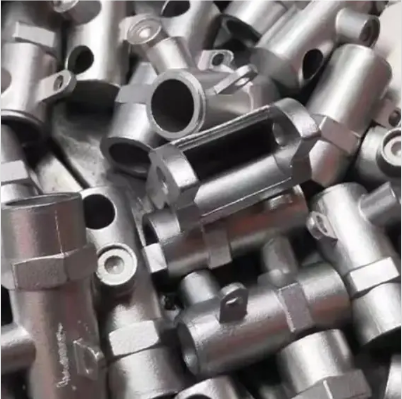Mobile:+86-311-808-126-83
Email:info@ydcastings.com
Understanding the Benefits and Applications of Aluminum Alloy Die Casting in Manufacturing
Aluminum Alloy Die Casting Advantages and Applications
Aluminum alloy die casting is a highly effective manufacturing process that converts molten aluminum into a wide range of intricate components with excellent dimensional accuracy and surface finish. This process involves forcing molten aluminum under pressure into a steel mold, known as a die. Once cooled, the die is opened, and the finished part is ejected. This article explores the advantages, applications, and considerations of aluminum alloy die casting in modern manufacturing.
Advantages of Aluminum Alloy Die Casting
1. Lightweight Properties Aluminum is significantly lighter than other metals like steel or brass, making aluminum alloy die casting ideal for applications where weight reduction is crucial. This is especially important in industries like automotive and aerospace, where lighter components lead to improved fuel efficiency and performance.
2. High Strength-to-Weight Ratio Despite its lightness, aluminum exhibits remarkable strength. When alloyed with elements like silicon, magnesium, or copper, aluminum can achieve tensile strengths that rival those of many steels. This high strength-to-weight ratio makes aluminum die-cast parts suitable for load-bearing applications while keeping the overall material weight low.
3. Excellent Corrosion Resistance Aluminum naturally forms a protective oxide layer that provides excellent resistance against corrosion. This characteristic is particularly advantageous in environments where components are exposed to moisture, chemicals, or seawater. Industries such as marine, automotive, and construction greatly benefit from aluminum's corrosion-resistant properties.
4. Versatile Design Options Aluminum die casting enables the creation of complex geometries and intricate designs that would be difficult or impossible to achieve with other manufacturing processes. This versatility not only enhances product functionality but also allows for significant aesthetic design considerations.
5. Cost-Effective Production Although the initial tooling costs for die casting can be high, the process is cost-effective for large volume production runs. The ability to produce highly precise components with minimal machining reduces labor and material waste, leading to lower overall production costs.
6. Environmental Benefits Aluminum is highly recyclable, making aluminum alloy die casting a more environmentally friendly option compared to other metalworking processes. Recycling aluminum requires only about 5% of the energy needed to produce new aluminum from ore, significantly reducing the carbon footprint associated with production.
aluminum alloy die casting

Applications of Aluminum Alloy Die Casting
Aluminum alloy die casting finds extensive applications across various industries due to its myriad advantages. Some key application areas include
- Automotive Industry Aluminum die casting is widely used for manufacturing engine blocks, transmission cases, and various structural components. The lightweight nature of aluminum contributes to enhanced fuel efficiency in vehicles, making it a preferred material in modern automobile designs.
- Aerospace Components such as housings for electrical systems, brackets, and structural parts in aircraft are frequently produced using aluminum alloy die casting due to their strength, light weight, and resistance to extreme temperatures and conditions.
- Consumer Electronics Products like laptops, smartphones, and other electronic devices often incorporate aluminum die-cast casings. Not only does this provide durability, but it also enhances the aesthetic appeal of the product.
- Industrial Equipment Machinery components, housings, and accessories used in various industrial applications benefit from aluminum die casting, particularly where precision and reliability are required.
Considerations and Challenges
While aluminum alloy die casting presents numerous advantages, manufacturers must also consider some challenges. The initial investment for die casting molds can be high, making it less feasible for small production runs. Additionally, the choice of alloy and the design of the mold are critical in ensuring optimal results. Proper engineering and design process can mitigate defects such as porosity and surface imperfections.
In summary, aluminum alloy die casting is a versatile and efficient manufacturing process that offers significant benefits across many industries. Its lightweight nature, durability, excellent corrosion resistance, and cost-effectiveness make it a popular choice for producing complex and high-quality components. As industries continue to evolve and demand more efficient and sustainable practices, aluminum alloy die casting is poised to remain at the forefront of manufacturing technologies.
-
Why Should You Invest in Superior Pump Castings for Your Equipment?NewsJun.09,2025
-
Unlock Performance Potential with Stainless Impellers and Aluminum End CapsNewsJun.09,2025
-
Revolutionize Your Machinery with Superior Cast Iron and Aluminum ComponentsNewsJun.09,2025
-
Revolutionize Fluid Dynamics with Premium Pump ComponentsNewsJun.09,2025
-
Optimizing Industrial Systems with Essential Valve ComponentsNewsJun.09,2025
-
Elevate Grid Efficiency with High-Precision Power CastingsNewsJun.09,2025











